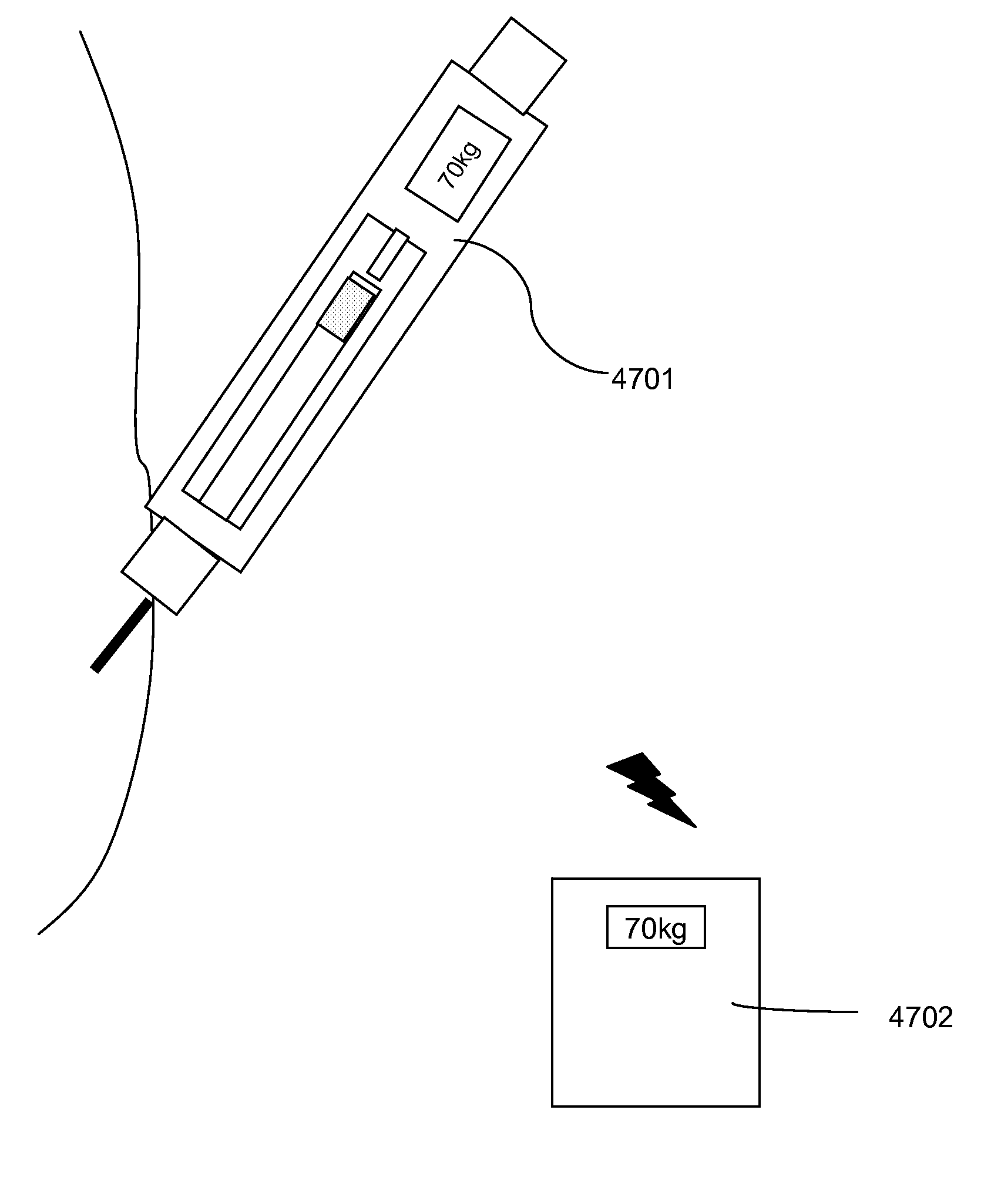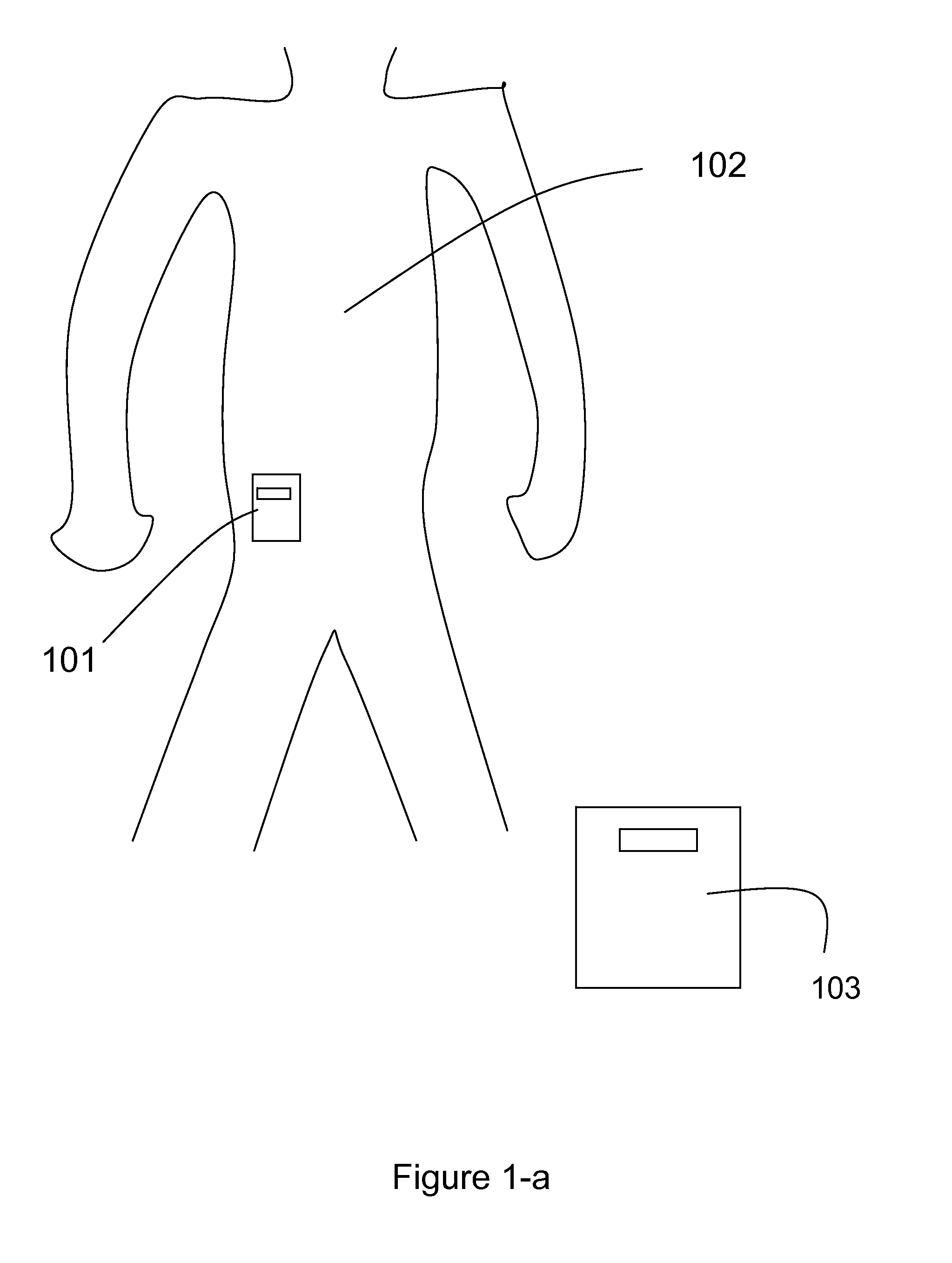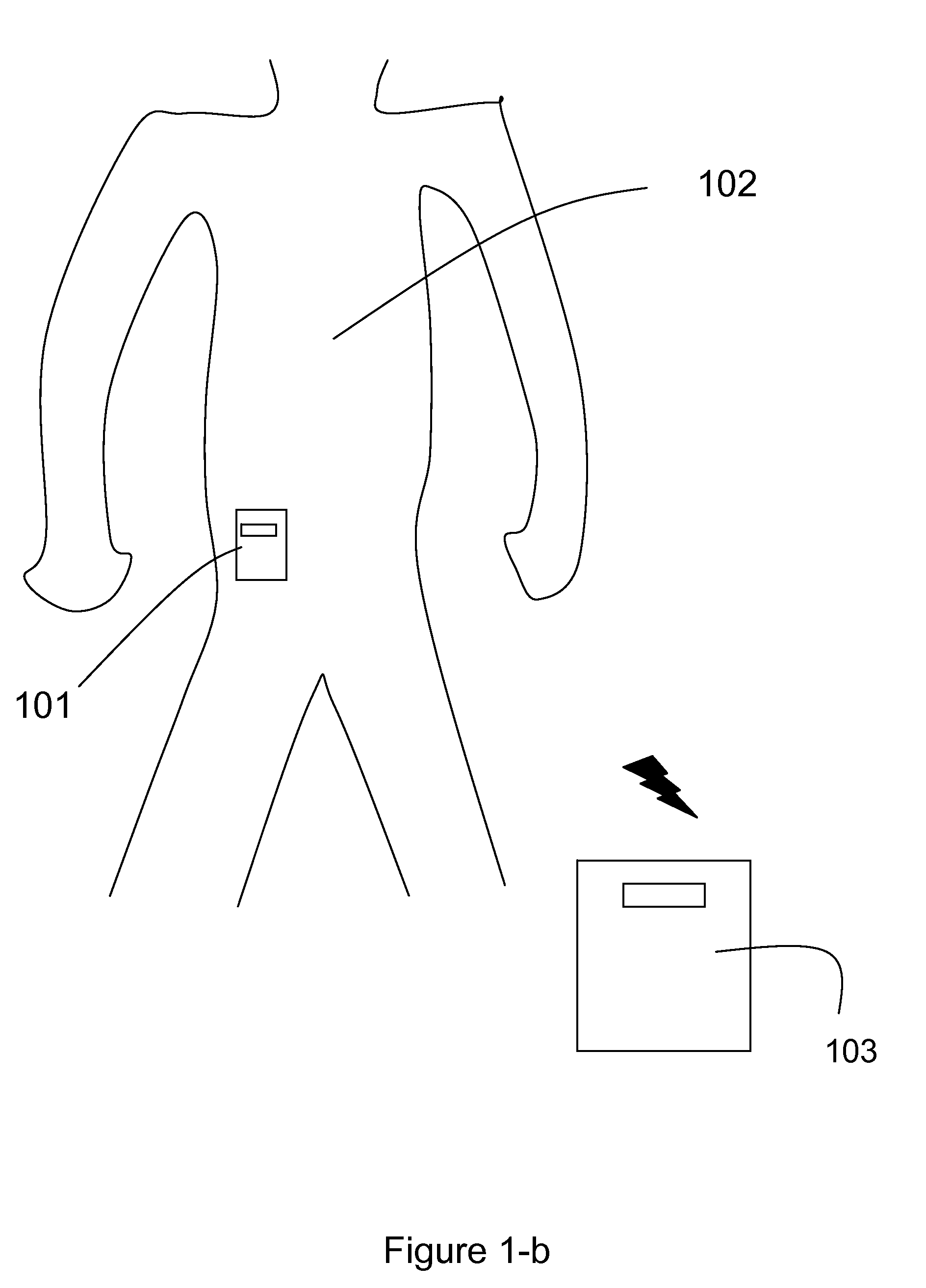Control of Body Fluid Condition Using Diuretics, Based on Weight Measurement
a technology of body fluid and weight measurement, applied in process and machine control, other medical devices, instruments, etc., can solve the problems of high mortality and hospitalization, death and hospitalization, congestive heart failure, etc., to achieve the effect of reducing hospitalizations and deaths, maintaining target weight and/or dry weight, and facilitating patients
- Summary
- Abstract
- Description
- Claims
- Application Information
AI Technical Summary
Benefits of technology
Problems solved by technology
Method used
Image
Examples
Embodiment Construction
[0060]FIG. 1-a depicts a diuretic infusion system according to the invention. Diuretic infusion device 101 is located on the patient's body 102. Weight sensor 103 measures the patient's body weight. In one embodiment, the weight sensor 103 is an electric scale. A user inputs measured body weight into the diuretic infusion device 101. The diuretic infusion device 101 delivers diuretic to the human body 102. The dose of the diuretic is determined based on the measured body weight. FIG. 1-b depicts another embodiment. The weight sensor 103 communicates with the diuretic infusion device 101, in this example using a wireless communications channel. Weight information, for example body weight, body weight change, past body weight measurements and / or body weight trends, is transferred from weight sensor 103 to the diuretic infusion device 101 via the wireless communication. The diuretic infusion device 101 uses this information to adjust the rate of diuretics infusion to the patient 102.
[0...
PUM
 Login to View More
Login to View More Abstract
Description
Claims
Application Information
 Login to View More
Login to View More - R&D
- Intellectual Property
- Life Sciences
- Materials
- Tech Scout
- Unparalleled Data Quality
- Higher Quality Content
- 60% Fewer Hallucinations
Browse by: Latest US Patents, China's latest patents, Technical Efficacy Thesaurus, Application Domain, Technology Topic, Popular Technical Reports.
© 2025 PatSnap. All rights reserved.Legal|Privacy policy|Modern Slavery Act Transparency Statement|Sitemap|About US| Contact US: help@patsnap.com



